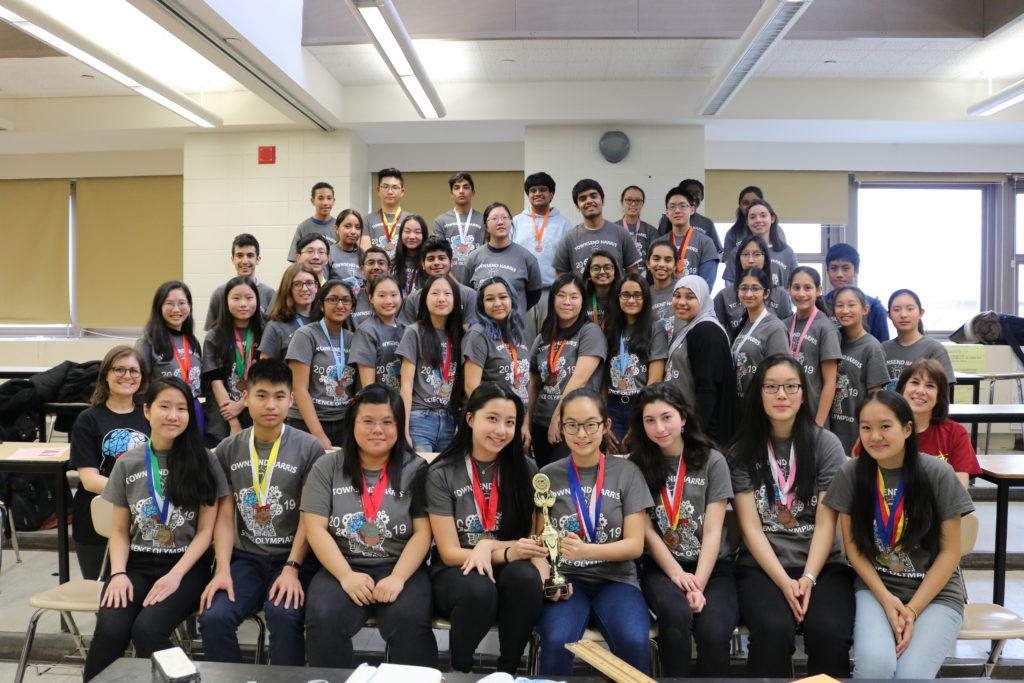
Townsend Harris’ Science Olympiad has had a rollercoaster of a season this year. In December, they took two teams to the Long Island SciOly (LISO) Invitational at Kellenberg Memorial High School. A month later, in January, they went to the Yale Undergraduate Invitational (YUSO) and placed 12th out of 30 schools. Not long after, they competed at the NY Metro Regional Competition in February and ranked 3rd out of 71 schools. Since they placed in the top 8 schools, they moved on to the State Tournament, where they ranked 8th out of 54 schools.
However, these successes did not come easily. The team’s morale dropped exponentially after their first competition of the season. “[LISO] was a rude wake-up call. Almost all of our most experienced team members did not earn a medal,” recounted the team’s Spirit Coordinator junior Elizabeth Duchan. “We were against some of the best schools in the Northeast, which was very unexpected because those schools don’t usually attend [LISO].”
President senior Michelle Lee and Vice President senior Lucia Lin managed to instill incentive for subsequent competitions and come to terms with their losses. “Even though the overall competition was disheartening, we won first place in the last event that they announced. [Although] it wasn’t my medal, the joy and exhilaration in that auditorium from our team was nothing I’ve seen before,” sophomore member Katie Sie said. “Our epic failure really brought us together as a team.”
The team worked quickly to place what they learned about their events and the competition setting from LISO in their intellectual arsenal. Within a week following that invitational, each competitor had compiled a list of topics with which they had been unfamiliar during the competition. They also held more frequent team study sessions in preparation for YUSO and Regionals.
“Sometimes, my parents would get mad at me for staying in school for too long because the study sessions would go into the night,” commented freshman member Joanna Liu. “At YUSO, I wasn’t sure if all my sacrifices were worth it because we saw a lot of the same schools [that we did] at LISO. As a result, I was shocked but more so proud, that we placed 8th.”
Despite the restored morale after YUSO, the team still had its worries. “One of our biggest concerns every year is our Building Events,” Build Coordinator junior Ruby Wang remarked. “This year, we had problems with budgeting, but more importantly, knowing where to start. Most of us [builders] learn how to construct these devices as we do them. That’s what sets Building Events apart from the others— we solely learn by practicing.”
Regardless of how much practice those builders get, problems at the competition are inevitable and unpredictable. This was especially true for an event called “Mission Possible,” which “ requires you to build a Rube Goldberg Machine that completes specific tasks in a specific order to meet a specific goal,” Ruby explained. “For example, you can be prompted to start the chain of events with a chemical reaction, have a pulley machine involved in the middle, and somehow end with a specific sound being heard.”
Coach Katherine Cooper said that there had been a particular “unfortunate mishap [during Regionals] that [she wishes] was avoided and it involved the [Mission Possible] device being bumped into right before it was tested.” If the proctor had not bumped into the device, then Ms. Cooper believes that the team could have ranked higher in that event. “We did incredibly well at Regionals despite that and ranked 3rd, behind Stuyvesant and Staten Island Tech.”
However, the team’s misfortune involving Mission Possible had not stopped there. Their device nearly burst into flames at their State Tournament, almost disqualifying them from that event.
Their ability to overcome countless obstacles before and during competition is only reflective of how “far [they’d] come as a team and family,” said Lucia.
The team has high expectations for next season and attributes their determination to the encouragement that they received throughout the year from their senior members while Ms. Cooper asserted that the reason for the team’s constant success is that they come back “more passionate, more dedicated, and readier to learn every year.”




























